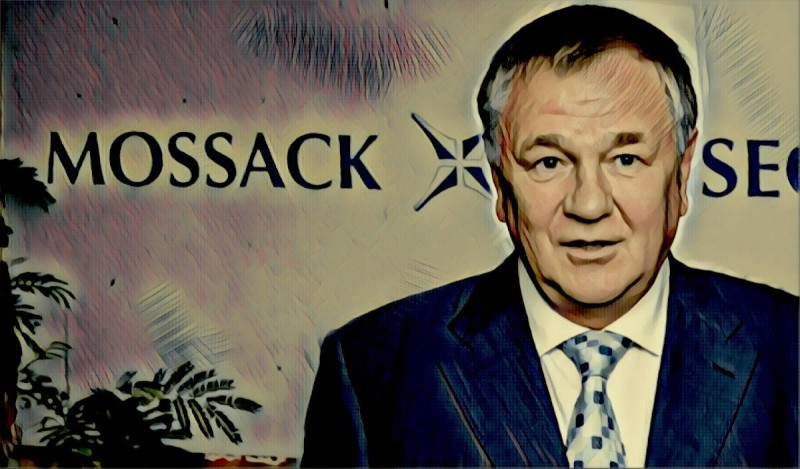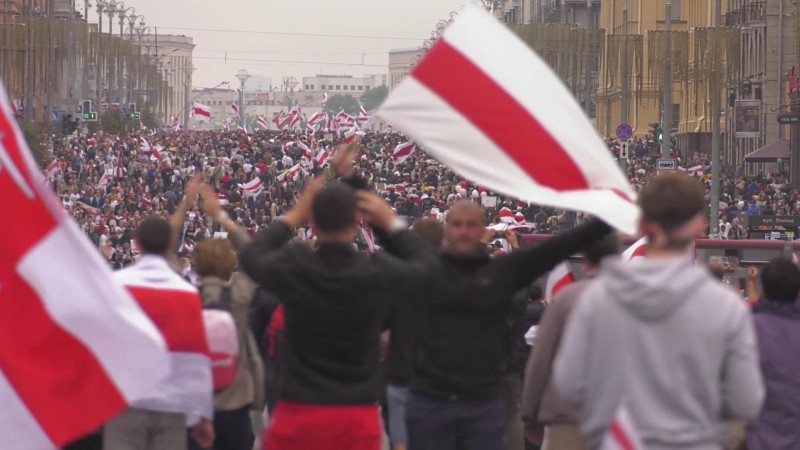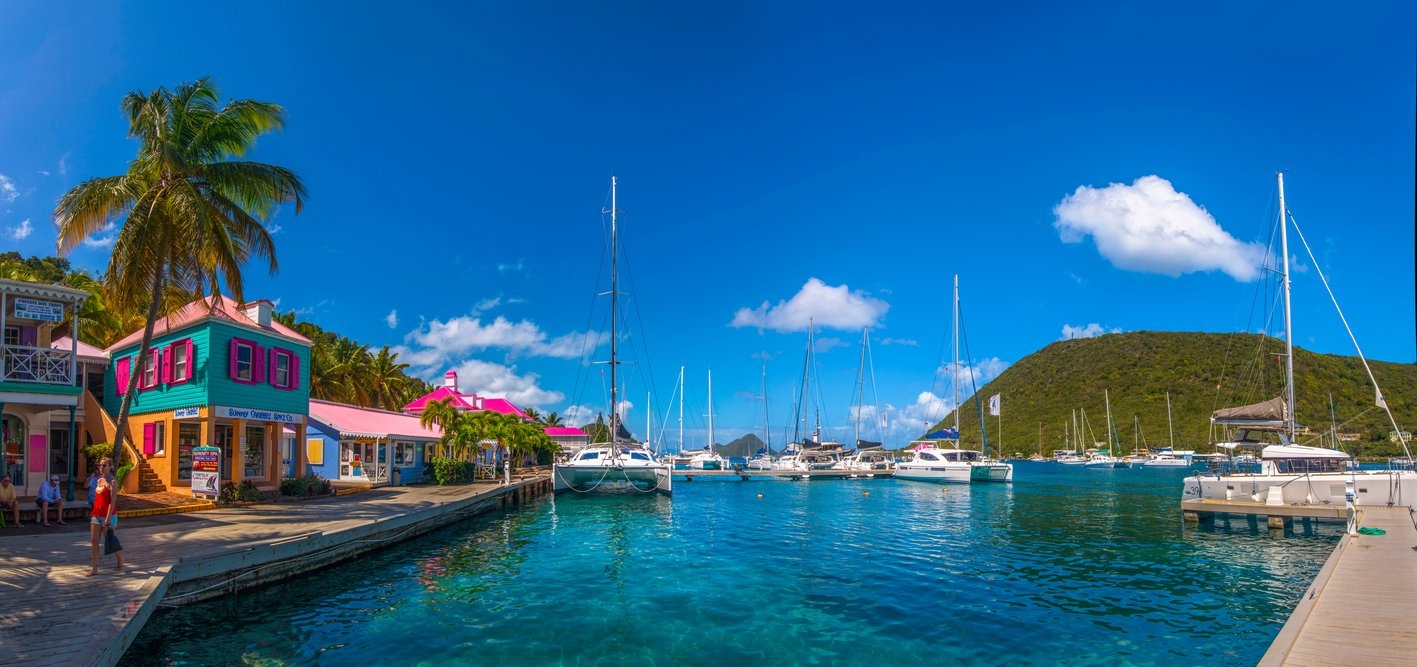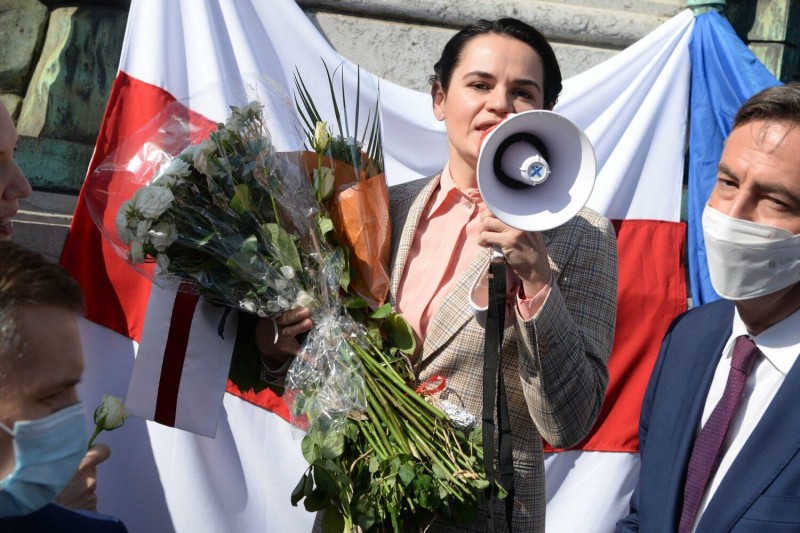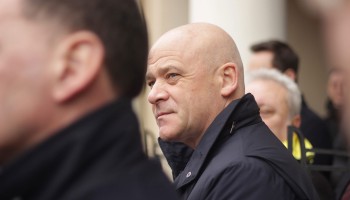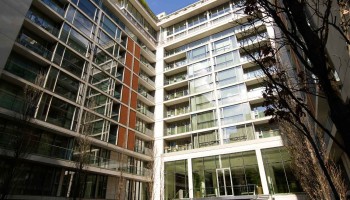In December 2010, Alexander Lukashenko celebrated his fourth reelection as the president of Belarus. The fight was far from fair: Lukashenko’s rivals argued that the dictator had abused his power to secure the win. The international community deemed the election flawed, and Belarusians in Minsk and other cities took to the streets demanding Lukashenko step down. The protesters were met with violence by police, and the strongman muscled himself into control of the country.
Fast forward a decade and that scene is being repeated. Western democracies have also replicated their response to the infamous election of 2010, imposing sanctions against officials and efforts against those directly responsible for the bloodshed.
But a review of documentation from the defunct Panamanian law firm Mossack Fonseca and other offshore providers shows how easy it is to evade the financial restrictions. At least one key Lukashenko insider managed to do just that with some creative paperwork courtesy of two now-defunct company service providers, who lied to investigators on his behalf.
OCCRP’s latest investigation, based on the Panama Papers leak, shows how businessman Anatoly Ternavsky, a close Lukashenko ally, used secret offshore jurisdictions and proxies to maintain his assets in the U.K. despite the fact that he was sanctioned by the European Union between 2012 and 2014.
Ternavsky did not respond to questions from reporters.
Lukashenko-Style Democracy
In September, Lukashenko held a secret inauguration for himself, even though the results of the August election were still disputed. The dictator — derisively called Bat’ka, or “father” in Belarusian — has long employed suppression and violence against opponents and activists.
Beating the Clock
Anatoly Ternavsky, a Ukraine-born Russian citizen, worked in the petroleum extraction industry in the Soviet Union. In the late 1990s, when Belarus got access to cheap Russian oil that it could process and re-export as part of a trade union treaty with its resource-rich neighbor, Ternavsky was quick to see the potential. By 2006, his company Univest-M, which started off as the exclusive dealer for Russian state oil company Rosneft, was Belarus’ third largest taxpayer. Today, Univest-M estimates its own investment portfolio — which includes production of building materials, construction, and hospitality industry investments — at $1 billion.
Both Ternavsky and Univest-M were targets of EU sanctions in March 2012, with additional details added in January 2014. The decisions described the businessman, who until 2011 had employed Lukashenko’s daughter-in-law, as “close to family members” of the Belarusian dictator, who was increasingly becoming an international pariah for his crackdowns on opposition.
Ternavsky was accused of financing Belarus’ problematic Interior Ministry, as well as state television and radio, while his company was named as a partner of Lukashenko’s President’s Sports Club. These close connections gave Ternavsky access to the country’s oil and real estate development sectors, according to the EU’s resolution. “Business activities on this scale would not be possible in Belarus without the approval of the Lukashenka regime,” the decision concluded.
The sanctions meant that Ternavsky and Univest-M could be targeted for asset freezes and other restrictive financial measures. Ternavsky turned to offshore service providers for help.
Leaked data from Mossack Fonseca, which was shared with reporters by Süddeutsche Zeitung and the International Consortium of Investigative Journalists, reveals that Ternavsky was “attorney-in-fact” for at least four companies, two in the notoriously secretive British Virgin Islands (BVI) and two in Panama. They also reveal how the service providers for these companies went out of their way to hide these links, allowing them to keep operating despite the EU sanctions.
Ternavsky had a permanent power of attorney issued in 2004 for Roping Marketing Corp., a BVI-registered holding company. The entity was also officially controlled by Courtyard Capital Inc., a Panamanian company linked to Ternavsky, when the businessman was sanctioned in connection with Lukashenko’s political crackdowns.
Days after the EU blacklisted Ternavsky, the paperwork for the company was changed in an unusual way, helping the Belarusian insider avoid scrutiny of key assets.
On April 2, 2012, Mossack Fonseca’s Swiss office received a request to change the ownership of the company by listing Pemlock Finance Corp, a newly established Panamanian company, as the owner of Roping Marketing. Curiously, the request from a representative of Steval Management, the Swiss service provider that regularly serviced Ternavsky-affiliated entities, had a very specific date in mind.
Mossack Fonseca was asked to backdate the ownership documents to March 8, 2012, almost a month earlier.
The corporate service provider did as it was asked, and prepared a board resolution and a new share certificate with the specified date.
The leaked emails don’t explain the reason for backdating the ownership documents, but the timing indicates the action was likely in response to the EU sanctions.
Big Business for Belarus
Anatoly Ternavsky’s business in Belarus reportedly began in 1998, when he was hired as vice president of Slavneft, a company jointly owned by the governments of Russia and Belarus. His role was to coordinate Slavneft’s activities in Belarus as the post-Soviet state became a major offshore zone for Russian petroleum.
‘The client counts on me to defend his concerns’
Despite the service providers’ efforts to hide their client’s true owner, BVI authorities launched an investigation into Roping several months after the sanctions were levied and the documents were changed. In August 2012, the BVI Financial Investigation Agency requested information about Roping’s beneficial owners and affiliates from Mossack Fonseca’s local office, on the Caribbean island of Tortola.
Compliance officers quickly determined that Ternavsky, who the company knew had been recently sanctioned, held power of attorney for Roping Marketing. They then turned to Steval Management, the Swiss firm representing the company, to establish the company’s beneficial owners. Emails show that Steval refused to disclose the information, citing Swiss law on anti-money laundering.
“Note that we only have available in our records that a Power of Attorney had been issued to a Mr. Anatoly Ternavsky on 5/10/2004, yet we do not have any form of confirmation from our client that indicates that he is the beneficial owner of the company,” Liza Aizprua, Mossack Fonseca’s corporate lawyer, wrote in an internal email within two weeks of receiving the FIA request.
Four days later, Mossack Fonseca sent the FIA an official response, claiming that two Steval employees were Roping’s ultimate beneficiaries.
Mossack Fonseca not only failed to report Ternavsky’s affiliation with the company in question, but withheld the damning due diligence records the FIA had requested, likely in violation of the BVI’s anti-money laundering regulations.
Despite the company’s lackluster response to authorities, internal emails show that Mossack Fonseca’s head of compliance in Panama was concerned about the affiliation. Sandra de Cornejo emailed her colleagues about the four companies she suspected were linked to Ternavsky. “If we were contacted by some authority we could not give the information [about beneficial ownership] and we would be breaching [the law],” de Cornejo wrote in March 2013, suggesting the company cut ties with the entities.
As advised, Mossack Fonseca quickly moved to end the relationships.
But Steval, the Swiss service provider, was “unpleasantly surprised” by the decision, according to internal communications. A subsequent meeting between Mossack Fonseca’s Swiss representative, Adrian Simon, and Steval convinced the company to completely reverse its decision.
“Our director Mr. Simon met the client today. The resignation as registered agent has to be stopped completely. The minutes of resignation of our nominees directors, etc. must be considered as not having been issued and must be destroyed,” an internal Mossack Fonseca email stated.
Simon’s account described the tone of the meeting: “The client was very upset about the attitude of MF and thinks it is a very dangerous manner to act and to proceed in such a way without having the necessary knowledge of the cases for which a decision to resign has been taken,” Simon wrote in his notes. “The client counts on me to defend his concerns.”
As requested, Mossack Fonseca agreed to continue its relationship with the Ternavsky-linked companies. Internal documents show that the Panamanian company’s BVI office did, however, file a suspicious activity report to authorities the following month, prompting a second inquiry from the FIA.
This time, Steval was more forthcoming with its prepared documents, including a statement signed by Natalia Ternavskaya, the daughter of the sanctioned businessman, naming her as the beneficiary of Roping Marketing, as well as its U.K. subsidiary, Uni-Trade. Like the backdated ownership documents generated by Mossack Fonseca for Roping, the statement was also dated March 8, 2012.
These documents would have existed months before the FIA first requested the information, but they were not turned over to investigators.
There were also the 2004 documents giving Anatoly Ternavsky power of attorney for Roping, which was in Mossack Fonseca’s possession. In May 2013, the company turned that information over to the FIA — more than a year after Ternavsky was sanctioned, and eight months after the investigators originally asked for records.
The evidence strongly suggests that Steval and Mossack Fonseca backdated documentation twice to shield their client from sanctions, and misled law enforcement officials investigating Roping. Financial filings show that Steval’s employees knew Roping was using the bank account of its U.K. subsidiary, Uni-Trade, to move assets. Yet Mossack Fonseca told the FIA that the holding company didn’t have a bank account.
“The law demands that businesses be the first line of defense against money laundering, flagging to the police those with suspect wealth and links to corruption. If [law enforcement] ask firms for their cooperation they should help, not hide vital evidence,” Duncan Hames, director of policy for Transparency International UK, told OCCRP. “There need to be much tougher penalties for those in business who help secure impunity for corrupt individuals and their associates.”
Despite its claims, Steval Management did not have a legitimate claim to enhanced privacy protections afforded to law firms in Switzerland, according to Mark Pieth, professor of Criminal Law and Criminology at the University of Basel. “Fiduciaries are subject to AML legislation in Switzerland and their secrecy protection is weak in comparison to that of lawyers. Therefore BVI authorities could ask for assistance from Switzerland,” Pieth said.
The Swiss company is now in liquidation, and the employees named in the leaked emails did not respond to requests for comment. Mossack Fonseca shut down in 2018, citing reputational damage following the Panama Papers investigation.
The Limits of Sanctions
In 2012, when Ternavsky was sanctioned, Roping Marketing held an 85 percent stake in Uni-Trade Limited, a now dissolved London-based company dealing in the wholesale of petroleum and petroleum products. During the years Ternavsky was sanctioned, the company reported annual profits of up to $500,000.
Employees of Steval Management were listed as Uni-Trade’s managers. One of the Swiss company representatives was also named on nine other U.K. companies, at least one of which was affiliated with Ternavsky’s daughter. Natalia Ternavskaya was listed in 2014 financials as the beneficiary of Unex Trading Limited, which at that time had declared more than $75 million in investments in the form of repayable loans.
A Panamanian company, Santarina Management S.A., was listed as the main creditor to Unex in 2015, having issued $68.5 million in loans to the company. Santarina was owned by Arco Trading, yet another Ternavsky company, until he was sanctioned in March 2012. At that point, the ownership was changed to bearer shares, allowing shareholders to remain anonymous while holding on to a company’s share certificates. Then in 2016, Natalia Ternavskaya was named as Santarina’s ultimate beneficial owner.
"Until relatively recently, bearer shares were a common tool for those seeking to control companies without revealing their true identities,” said Hames of Transparency International. “The secrecy they offer in addition to the ease with which they can be transferred has led to them being identified as a major money laundering risk, with them now being outlawed in most jurisdictions."
Questions about Ternavskaya’s businesses sent to the Univest-M office went unanswered.
Sanctions that require the freezing of assets belonging to blacklisted individuals extend to close relatives, including children, the European Commission told OCCRP in an email. Moreover, both the U.K. and its overseas territory BVI were required to comply with the EU’s sanctions on the Lukashenko regime and his cronies, the Commission confirmed.
However, the U.K.’s HM Treasury confirmed that Uni-Trade has never been subject to financial sanctions under EU, UN, or U.K. legislation. The agency said it could not disclose if it was ever notified of possible sanctions breaches related to Ternavsky or Roping Marketing.
BVI’s FIA did not respond to questions on whether it shared the information obtained from Mossack Fonseca with relevant U.K. authorities.
“It wouldn’t be surprising at all” for blacklisted individuals to evade sanctions by using offshore jurisdictions to prevent detection, according to Vytis Jurkonis, a lecturer at the Vilnius University Institute of International Relations and Political Science and longtime observer of Lukashenko’s regime.
“Declaring sanctions and implementing them are two different things,” Jurkonis noted.
When Sanctions Work
Sanctions on Lukashenko’s inner circle were sometimes effective, including in the case of Ternavsky’s Cypriot company.
UK-based anti-financial crime consultant Graham Barrow says it is relatively easy to get around sanctions using corporate structures and proxies, unless a sanctioned individual is a “big name.” For example, banks often use the defense that relationships between individuals couldn’t be established without “prior knowledge,” according to Barrow.
“Ultimately, the problem is that the legislation requires a risk-based approach (which would work if done properly) but the banks are more concerned about keeping the regulators happy than properly identifying underlying risk,” Barrow told OCCRP. “So they fill in the forms to show they have done something but it isn’t necessarily (or often) that effective. Regulators measure against procedures not outcomes. Sadly.”
